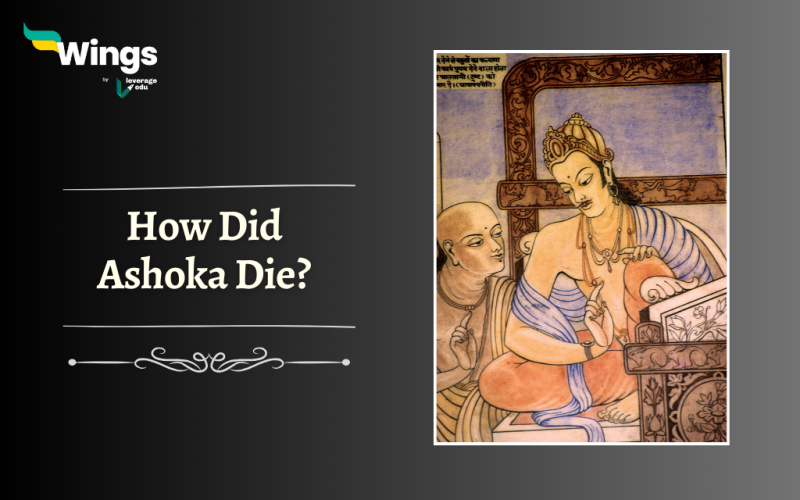Ashoka, also known as Ashoka the Great, was an Indian emperor who ruled the Maurya dynasty from 268 to 232 BCE. He is often remembered for his conversion to Buddhism and promotion of peace and non-violence. However, the question of how did Ashoka die remains a topic of speculation and debate even among historians and scholars. Let’s get to know the various theories that revolve around his death.
Table of Contents
Legends Surrounding His Death
Ashoka reigned for 36 years and died at the age of 72 in 232 BCE. There are several theories surrounding the demise of this legendary ruler. Some of them are –
1. Natural Causes
It is widely accepted that Ashoka died of natural causes, possibly due to old age or illness. After years of conquests and ruling a vast empire, it is plausible that his health may have deteriorated towards the end of his life.

2. Assassination
Some historical accounts suggest that Ashoka may have been assassinated. Given his transformation from a ruthless conqueror to a proponent of peace, he may have made enemies within his own court or among rival factions.
3. Curse
There are also legends that attribute Ashoka’s death to a curse placed upon him. Some stories suggest that his past actions of violence and bloodshed haunted him until his dying day, ultimately leading to his demise.
Also Read – How Did Chandragupta Maurya Die?
4. Mental Agony
While some believe he died of mental agony, as he walked the path of Kalinga after Kalinga War and saw the dead bodies and the river of blood running, making him guilty about his own cruelty. There is also speculation that Ashoka may have taken his own life in a moment of despair or disillusionment.
In conclusion, the exact circumstances surrounding Ashoka the Great’s death remain shrouded in mystery and intrigue. While there are several theories regarding how he died, the truth may never be fully known.
Relevant Blogs
This was all about how did Ashoka Die. If you want to know more about topics like this, then visit our general knowledge page! Alternatively, you can also read our blog on general knowledge for competitive exams!
 One app for all your study abroad needs
One app for all your study abroad needs













